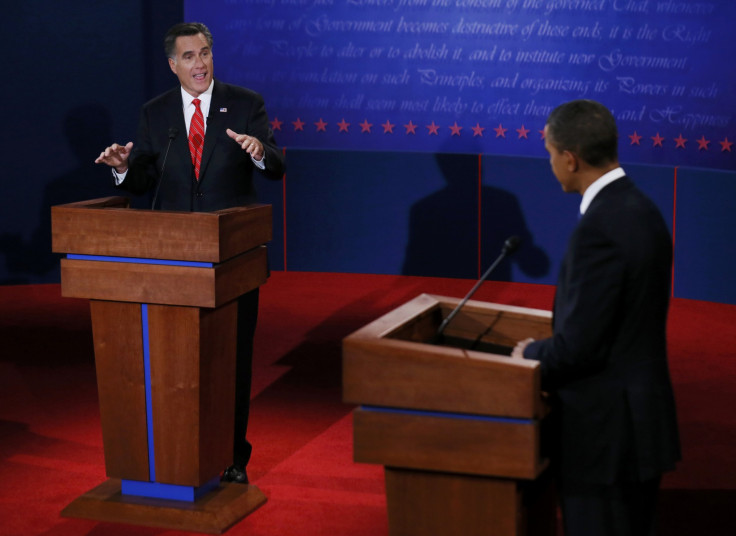Presidential Debate 2012: 5 Domestic Policies That Weren't Mentioned

The first presidential debate of the season on Wednesday was dedicated to showcasing the candidates’ positions on domestic issues. But while the economy and healthcare reform were, understandably, the major themes of the night, there were several pressing -- and timely -- national issues that were lost in the shuffle.
Gun Control
Despite the fact that there have been six mass shootings in the United States this year -- events that injured or killed at least 110 people -- neither President Barack Obama nor Republican candidate Mitt Romney have called for further gun control regulations. Instead both men, likely afraid of making any move that could be interpreted as trampling on Americans’ Second Amendment right to bear arms, have slowly distanced themselves from the issue and, in the wake of multiple deadly shootings, insisted that lawmakers should focus on enforcing laws that are already on the books.
The problem (as many people have already pointed out ) is that most of the perpetrators who committed these acts of violence managed to obtain their weapons legally -- even those who had a history of mental illness.
In the days leading up to the debate in Denver, Colo., a survivor of July’s Aurora movie theater massacre starred in an advertisement where he urged the presidential candidates to discuss their strategies to combat gun violence in the United States. As many expected, his request was not heard.
Voter ID Laws
Seventeen states have passed laws requiring voters to show some form of photo identification, (such as a driver’s license) before being allowed to cast a ballot this election cycle, a strategy civil liberties organizations report disproportionately affects minorities and elderly voters. Voting list purges in Florida, for example, were discovered to have erroneously removed naturalized citizens from the voting rolls. Still, Florida and other Republican-leaning states insist the effort is necessary to combat voter fraud -- even though a recent nationwide study concluded there have only been 10 cases of alleged in-person voter impersonation since 2000.
Torture
One of Obama’s first acts as president was signing an executive order that forbids government interrogators from torturing detainees. But, according to an internal memo obtained by the New York Times, Romney’s policy advisers have recommended the GOP candidate make a show of ordering a “review” of torture policy before ultimately rescinding the executive order in question.
Jack Goldsmith, who was the head of the Officer of Legal Counsel under President George W. Bush, concluded that any return to the use of torture or other “enhanced interrogation techniques” would be “indisputably illegal” and even opposed by the interrogators who would be tasked with the actual torturing.
Medical Marijuana
Neither Obama nor Romney are considered to be “weed friendly” candidates, despite the president’s personal history with the substance. But they’re not on the same page as a majority of the nation. Recent polling has found that more than 70 percent of likely voters believe medical marijuana should be legal; in fact, polls show that voters under 35 favor full-on legalization at the rate of 2-to-1.
Although Obama insisted he believed medical marijuana was an issue best left to state and local governments during his 2008 campaign, he has been accused of waging a virtual war on pot since taking office. Eight different states will vote on ballot initiatives concerning marijuana legalization and regulation in November. As some have already noted, Obama -- who already has a strong lead over Romney among youth voters -- could potentially receive a critical boost from that demographic if he backed off their bud.
Abortion
At this point, practically every voter in the country knows where the candidates stand when it comes to women’s reproductive rights. What they may not know is that Romney, far beyond having a personal opposition to abortion, has said he would “prefer” to see the U.S. Supreme Court overturn Roe v. Wade if he is elected to the White House.
But polling suggests that even many Americans who call themselves “pro-life” also believe abortion should be legal in certain circumstances. Plus, because many conservatives have attempted to equate some hormonal birth control with “abortifacients," overturning the landmark Supreme Court decision could potentially have major consequences on women’s ability to obtain basic forms of contraception.
© Copyright IBTimes 2024. All rights reserved.





















